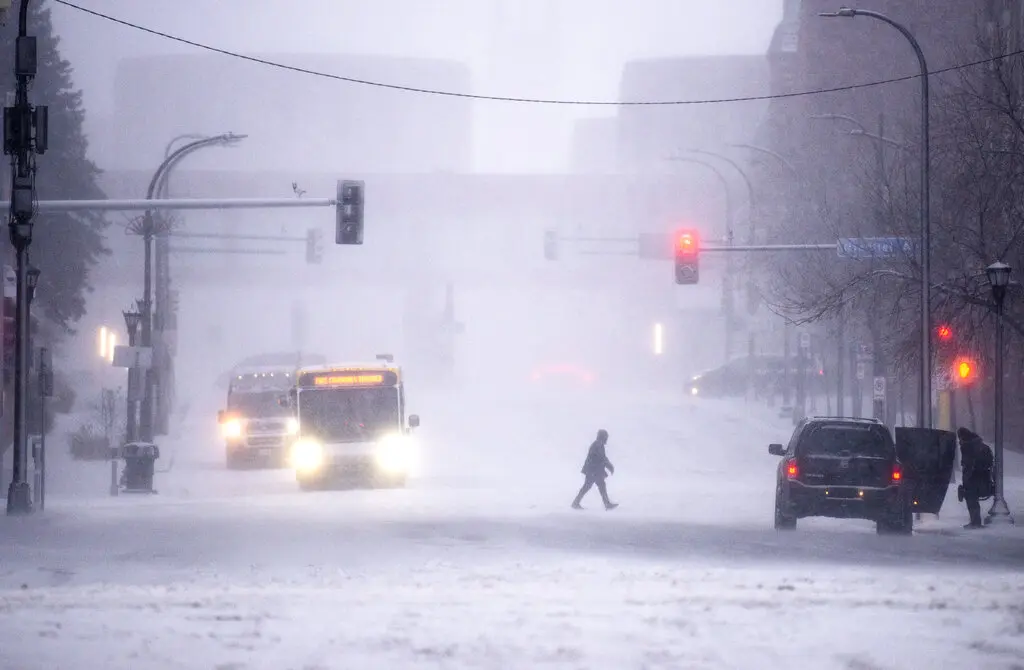What I SHOULD and SHOULD NOT Do During a Winter Storm

Photo: Stephen Maturen/Getty Images
- Stay indoors during the storm.
- Walk carefully on snowy, icy walkways.
- Avoid overexertion when shoveling snow; overexertion can bring on a heart attack
— a major cause of death in the winter. - If you must shovel snow, stretch before going outside.
- Keep dry and change wet clothing frequently to prevent a loss of body heat.
(wet clothing loses all its insulating value and transmits heat rapidly) - Watch for signs of frostbite: loss of feeling and white or pale appearance in extremities such as fingers, toes, earlobes and the tip of the nose. If symptoms are detected,
get medical help immediately. - Watch for signs of hypothermia: uncontrollable shivering, memory loss, disorientation, incoherence, slurred speech, drowsiness, and apparent exhaustion. If symptoms of hypothermia are detected, get the victim to a warm location, remove wet clothing, warm the center of the body first and give warm, non-alcoholic beverages if the victim is conscious. Get medical help as soon as possible.
- Drive only if it is necessary. If you must drive travel in the day, don’t travel alone, keep others informed of your schedule, stay on main roads, and avoid back road shortcuts
- Let someone know your destination, your route and when you expect to arrive. If your car gets stuck along the way, help can be sent along your predetermined route
- Maintain ventilation when using kerosene heaters to avoid build-up of toxic fumes
- Refuel kerosene heaters outside and keep them at least three feet from
flammable objects. - Conserve fuel, if necessary, by keeping your residence cooler than normal. Temporarily close off heat to some rooms.
- If you will be going away during cold weather, leave the heat on in your home, set to a temperature no lower than 60°F.
- Leave water slightly running to avoid frozen pipes, but if it does occur, call a professional company to help.
And as always and most important don’t forget to check on your older family and neighbors. This time of year can be especially hard and dangerous on them.
recent posts

Join All Boro at The NY Islanders Game!
Join us tonight at the New York Islanders game as we cheer on the team and support an incredible cause: The Little Saint Nick Foundation!

A Wild Day at the Bronx Zoo!
Thanks to our Summer Bash fundraiser in June, we were able to bring together an amazing community on September 15th for an unforgettable trip. We were joined by friends from: People's Arc of Suffolk AHRC Nassau The Center QSAC WellLife Network Outreach: Building...

Mell Goldman Honored at People’s Arc of Suffolk Candlelight Ball
Join Mell Goldman at People's Arc of Suffolk's Candlelight Ball on October 16th at Villa Lombardi’s! This is Mell’s first gala that he is being honored at, and we need to make this a great night for People’s Arc of Suffolk County who do so much for people with...
